"A natural pause button"
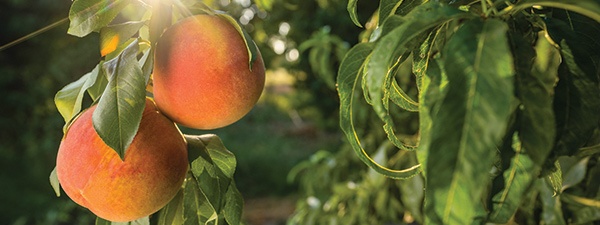
Fall 2024 California Bountiful magazine
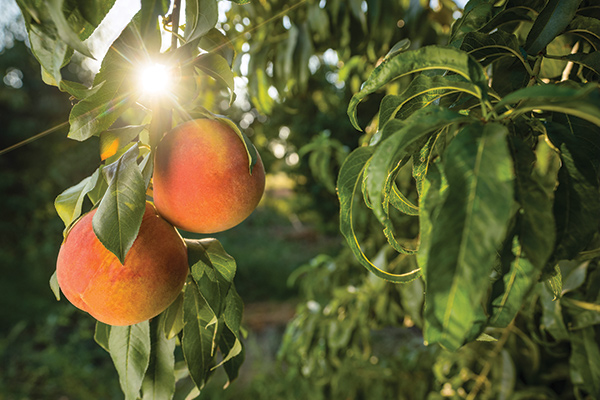
Family locks seasonal freshness into frozen fruit
Story by Christine Souza
Photos by Tomas Ovalle
It’s sometimes tough to track down fresh and flavorful fruit after summer ends, but one Fresno County farming family has spent more than 60 years perfecting a process to freeze its peaches and other fruit so peak-of-season sweetness can be enjoyed year-round.
Calling the freezing process “a natural pause button for the fruit,” Bill Smittcamp, president and CEO of Clovis-based Wawona Frozen Foods, says frozen fruit products offer seasonal flavor and appearance, more nutrition due to added vitamin C to prevent oxidation, a long shelf life and less food waste.
A third-generation family business, Wawona produces more than 125 million pounds of frozen products each year from its own farm-grown peaches and fruits such as strawberries, pears and plums grown by other farmers. Smittcamp says he chooses fruit varieties developed specifically for freezing so that products are tasty, colorful, large and offer great texture.
“When I go to food shows or walk up and down the aisles of our local grocery stores, I try to figure out: How can I get that best-tasting peach or strawberry or blueberry to the consumer when it’s not available fresh?” he says.
From its plants in Clovis, Fresno and Watsonville, Wawona provides frozen fruit to retail, foodservice and industrial customers, and to students through school meal programs. The fruit is either sliced, diced, pureed or used as an ingredient, such as for pastries, and is distributed throughout North America.
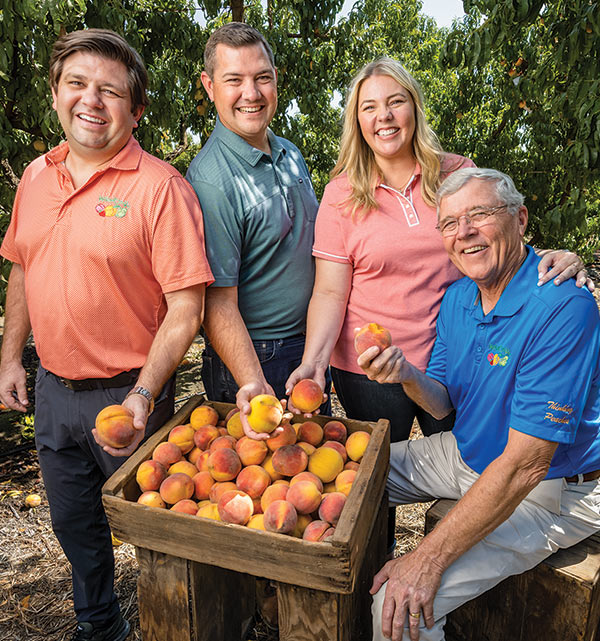
It started with peaches
Founded in 1963, the family business was started by Bill Smittcamp’s father, Earl Smittcamp, who purchased 200 acres of freestone peach trees in Clovis for the fresh market after returning from serving in World War II as a U.S. Marine.
“At that time, there were 15 (fruit) processors and our biggest business was peach customers who made pies, preserves and ice cream,” Bill Smittcamp says. “There weren’t any frozen peaches in the grocery stores in those days.”
Experimentation of freezing produce started in the 1920s and 1930s with innovations by Clarence Birdseye, considered the founder of the modern frozen food industry.
“It was really an industry innovation that we were part of,” Smittcamp says, noting that Birdseye started freezing vegetables through a process still used today called individually quick freezing or IQF, which eventually expanded to include freezing fruit.
“Through the late 1970s and 1980s, industry folks started experimenting—‘Let’s see if we can just freeze a whole strawberry, and if we freeze a sliced peach, what will happen?’” Smittcamp says. “A lot of evolution happened, and by the mid-1980s, the process of IQF produce came around and that changed everything.”
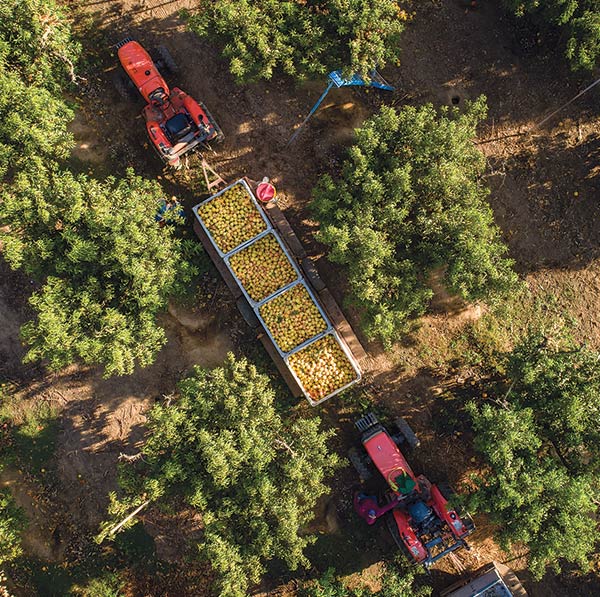
Picked at peak ripeness
Hand-harvested between June and early October, freestone peaches are placed into cold storage, which drops the temperature to 34 degrees. Prior to freezing, fruit is warmed to ambient temperature to allow the pit to release freely. Automated pitters pit 80 to 90 peaches per minute, and employees detect and remove any pit fragments. Peaches are cut in half, peeled and sorted, and fruit moves through tunnels that freeze it within 15 minutes.
“Peaches are picked at the peak of ripeness and freezing locks in the nutrients,” says Smittcamp’s son Bradley Smittcamp, Wawona’s regional sales manager. “Our shelf life is frozen for 24 months until it’s time to thaw. Once thawed, it’s like it was picked yesterday.”
“We take the best-of-the-best sliced peaches, add fruit syrup and ascorbic acid (vitamin C) and then we pack that into a plastic bag, draw a vacuum on it and freeze it,” Bill Smittcamp adds. “There is not a national brand of frozen pie, cobbler, yogurt, ice cream or bagged fruit that doesn’t have a peach from our operation.”
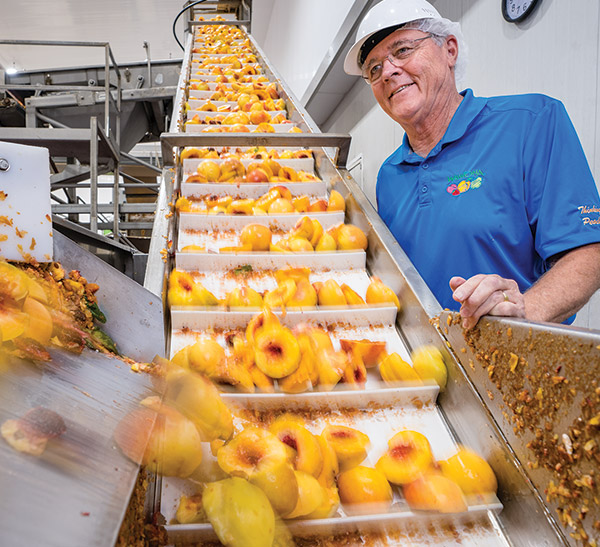
Continuing a family tradition
With more than 100 frozen fruit products, Wawona tailors its offerings to meet the needs of the marketplace, such as large-sized bags for food-service customers and smaller sizes for retailers and supermarkets. Sliced and diced frozen fruit is about half of Wawona’s production. Firm fruit is sold to customers for pies or yogurt, and soft fruit ends up in ice cream or purees.
Smittcamp says the shift toward healthier eating creates demand for frozen fruit and notes that the company is “selling a lot to the smoothie world and doing more convenient packaging.” However, “demand for comfort foods—the cobblers and ice cream—continues to diminish.”
He says he enjoys the peaches year-round, using them to make strudel, adding thawed peaches to fruit salads and pairing warmed peaches with waffles.
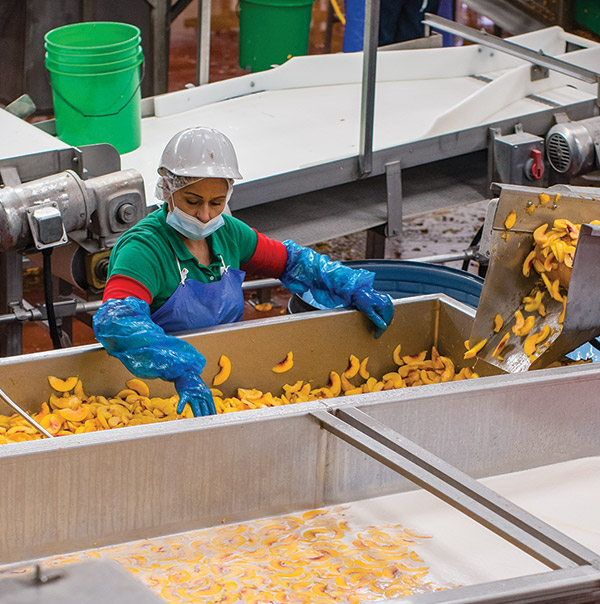
Smittcamp’s children grew up eating the family’s signature fruit slices and other products and continue the tradition by serving the peaches and other products to their own children.
“As a working mom with two little boys at home, our fruit cups and fruit pops are a go-to, and a peach fruit pop is all my boys ask for, and a family favorite,” says Blair Smittcamp-Martin, Wawona’s marketing and special projects manager. “I want to make sure my kids love and enjoy what their ‘Big Papa,’ uncles and mommy make at work.”
Growing, harvesting and freezing fruit and developing new fruit products is a family affair that Smittcamp says includes his wife, Linda, who oversees the family’s fruit stand, and his children and employees.
“We will continue to innovate to get fresh products to the consumer as fast as we possibly can,” he says. “I wake up every day trying to figure out how we can make something that’s nutritious and tastes good and where we’ll make a little money.”
Ready-to-serve nutrition for students
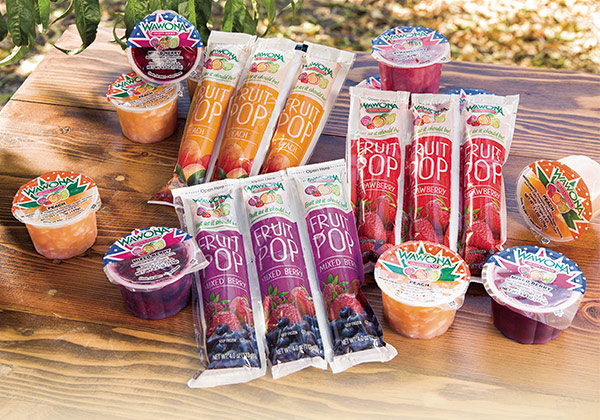
As an approved national processor by the U.S. Department of Agriculture, Clovis-based Wawona Frozen Foods, which freezes a parade of fresh fruit varieties, prides itself on serving schoolchildren quality nutrition. That includes distributing 100 million frozen fruit cups annually as part of the national school lunch program.
“We believe households are best served when they have access to all forms of nutritious foods,” President and CEO Bill Smittcamp says.
Alena Miller, Lodi Unified School District nutrition specialist, says Wawona’s frozen fruit products meet the required nutritional standards for students and help the district reduce preparation time because many items the food-service staff can just thaw and serve.
“With serving and providing meals for students, it’s super, super important for us to provide access to not only nutritious food but access to local produce,” which she says, “really needs to be in their (students’) hands every single day.”
“We pair one of our baked goods with a smoothie and it checks off all the boxes of the components that need to be met in a meal,” Miller says. “We’ve used peaches, mangoes and strawberries to create different smoothie flavors. Believe it or not, the high school kids go bonkers over our smoothie and muffin.”
Sliced fruit, fruit cups and fruit pops arrive frozen at the district’s centralized production kitchen, Miller says. When it’s needed, the fruit is moved into a refrigerator to thaw. “It’s incredibly easy.”
Bradley Smittcamp, Wawona’s regional sales manager, says the family company also reprocesses fruit for schools.
“We’ll take canned peaches that the schools don’t know what to do with, open the cans and drain that sugar off and turn that into a frozen peach pop or a bakery item,” he says. “It’s taking it a step further and tailoring it to what the schools want.”
Students of all ages, Miller says, enjoy the “easy to use” fruit pops and “delicious” fruit cups. “You’ve got peach, strawberry, mixed berry, pear, apple. I mean, there’s all kinds of great flavors. When a product looks inviting to a student, it’s honestly a win-win.”

